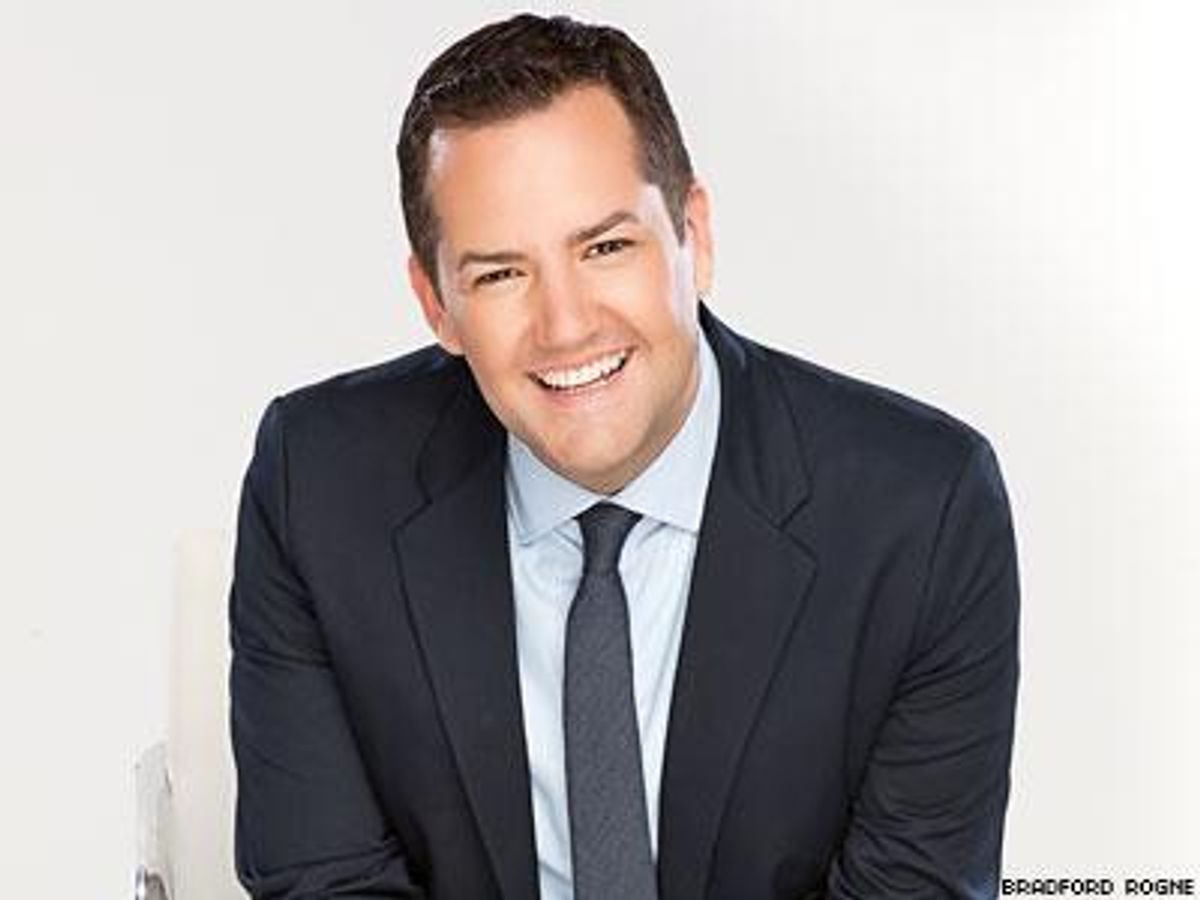Ross Mathews has come a long way from being Jay Leno’s intern. It’s been more than a decade since Mathews first appeared on
The Tonight Show, endearing himself to late night audiences with sketches highlighting his good nature, quick wit, and general likability. Mathews soon landed more TV gigs—interviewing A-listers at the Oscars, guest-hosting
The View, and joining Chelsea Handler’s panel of snarky commenters on her E! series,
Chelsea Lately. Mathews has been on a roll this year, releasing the best-selling memoir
Man Up! Tales of My Delusional Self-Confidence and landing his own E! talk show,
Hello Ross. Now he’s working with the maker of OraQuick, the first in-home rapid HIV test, on the “Life as We Know It” campaign to get gay and bi men talking and testing. We spoke with Mathews about why this cause is important to him and how OraQuick helped change his thoughts on HIV.
How did you get involved with the OraQuick campaign?
With the new show and being on Chelsea so often, I get to talk to millions of people every week, but my biggest connection is to the LGBT community. I have a direct connection with them because I, of course, am gay. I travel the country, go to different pride events, speak all the time to the community. But when you look at the rates of HIV, 63 percent of the new cases are gay men, and I don’t understand that because there’s so much marketing to us about how to have safe sex and how important it is, but still those numbers are there. When OraQuick came to me, they explained that people are afraid of the [standard HIV] test. It’s a two-pronged fear: One, people are scared of the results, and two, the test itself and the waiting period between the test and getting the answer and having to go to the doctor. What I wasn’t aware of is the new technology. I didn’t know OraQuick existed, which is available at every pharmacy; you can order it online, it comes to your house. You just swab your mouth, there are no needles, no blood, and in 20 minutes you know your status. That changes everything because you can meet someone and before you have sex you can find out each other’s status.
How has the perception of HIV changed since when you were first coming out? I remember at the end of elementary school and the beginning of junior high, they really started teaching AIDS awareness, and they were telling you if you get it, you’re dead. Thank God so much has changed and people are living long lives with HIV. But what’s scary and really unacceptable is that that number [of new infections] is going up in gay men even though we have all these tools to keep us safer than ever.
How do your friends talk about HIV?
Their awareness of HIV is the same as everyone else’s. When my partner and I got together, before we ever had sex we were both tested. We were negative; that was our story. There are friends of mine who have not been tested in a very long time and who are sexually active. And when I started working with OraQuick, I asked my friends why [they haven’t been tested] and the answer is: “Because it’s scary, I think about it all the time, but I’ve managed to put it out of my mind.”
What more can be done to remind bi and gay men that HIV remains an issue?
I live in Palm Springs [Calif.] part-time, and one thing I love about it is that there’s such a connection to the generation before of gay men who lived through a very different time. Many of the men in Palm Springs lost their best friends to HIV, and because I hear their stories and I really value that connection, I feel I have a better understanding of how lucky we are that we have technologies available to us. So I feel an obligation to continue that story — that’s part of why I’m doing this, to tell our generation, “Don’t take it for granted.” We are really fortunate we can take care of ourselves better than we ever have before.
You’re hilarious, but HIV is a serious subject. Do you think OraQuick was trying to make the test less scary by working with someone like you?
I think they thought that people would trust me. I never lie to people, and that’s why I have a talk show, because I have a real relationship with the audience; I tell it like it is whether it’s about pop culture or HIV. When I saw those stats and I saw this product, I thought, This is something I better use my platform to help get out.
It’s the most fun you’ll have all week. It is really the place for pop culture and people to come together. I think there are so many shows that just tear apart pop culture and talk about how stupid it is. But I love this stuff. And we just got picked up for new episodes until the end of the year. I’m so happy.

